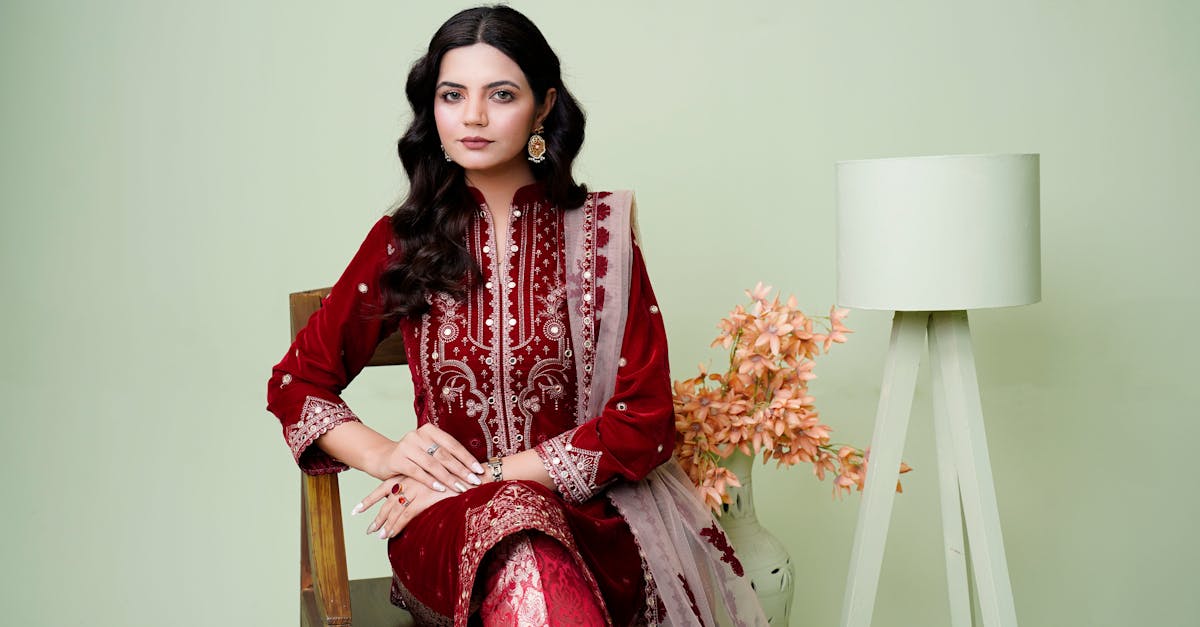Mindful Fashion Pulse The Rise of Conscious Consumerism
Introduction to Mindful Fashion
In recent years, there has been a growing shift in the fashion industry, fueled by the concept of mindful fashion. This movement emphasizes sustainability, ethical production, and conscious consumerism, aligning fashion choices with environmental and social responsibility. With the increasing awareness of the industry's carbon footprint and labor conditions, more consumers are making informed decisions when shopping for clothes. Sustainable fashion is transforming from a niche market into a mainstream demand, pushing brands to reassess their values and practices. The influential role of technology and social media further amplifies this shift, enabling greater transparency. Mindful fashion is not just a trend; it's a pivotal change in how we approach clothing and style.
Advertisement
The Origins of Mindful Fashion
The roots of mindful fashion can be traced back to the growing ecological awareness and advocacy for fair trade practices. Since the 1960s, environmental movements have highlighted the detrimental impacts of mass production practices. As the 21st century unfolded, the call for sustainable fashion grew louder, largely due to increased media coverage and reports exposing unethical manufacturing practices. Brands like Patagonia and Stella McCartney pioneered this approach early on, setting standards for environmentally-conscious production. Today, the movement has gained global traction, with fashion weeks showcasing sustainable collections and the rise of eco-friendly fashion startups.
Advertisement
Key Principles of Mindful Fashion
Mindful fashion is guided by several core principles centered around sustainability and ethics. These include reducing waste through upcycling, utilizing organic or recycled materials, and implementing ethical labor practices. Designers aim for minimal environmental impact, from sourcing raw materials to end-of-life disposal. Additionally, transparent supply chains and fair wages are paramount, ensuring workers' rights are upheld. Another vital aspect is the promotion of quality over quantity, encouraging consumers to invest in durable, timeless pieces rather than fast fashion. These principles not only benefit the environment and workers but also encourage mindful shopping habits.
Advertisement
Consumer Mindset in Mindful Fashion
Modern consumers are more informed and conscientious than ever before, demanding accountability and transparency from the brands they support. With the help of digital tools and platforms, shoppers can easily access information about a brand's ethical standing. Social media influencers play a significant role in spreading awareness about sustainable fashion, endorsing ethical brands and sustainable practices. As a result, consumers are more likely to participate in initiatives like clothing swaps, renting garments, and investing in brands that align with their values. This shift in consumer mindset is a driving force behind the changing landscape of the fashion industry.
Advertisement
Challenges in the Sustainable Fashion Industry
Despite its progress, mindful fashion faces several challenges, such as higher production costs and the misconception of sustainable products being overpriced. Small brands particularly struggle with the financial burden of adopting sustainable practices. Moreover, the industry still battles greenwashing, where companies falsely promote their products as eco-friendly. Navigating these obstacles requires collaboration between stakeholders, including policymakers, designers, and consumers. By introducing stricter regulations and fostering innovation, the industry can overcome these drawbacks and continue its positive trajectory. Education is also crucial in dispelling myths about sustainability and highlighting its long-term benefits.
Advertisement
The Role of Technology in Mindful Fashion
Technology plays an essential role in propelling the mindful fashion movement forward. Innovative processes like 3D printing reduce waste by streamlining production, while blockchain technology tracks supply chain integrity, ensuring ethical practices are maintained. Additionally, AI-driven tools help brands predict trends and reduce excess inventory, minimizing environmental impact. Virtual fitting rooms and digital platforms further facilitate conscious consumer choices by offering insights into garment origins and overall environmental impact. As technology continues to evolve, its potential to enhance sustainability and efficiency within the fashion industry is vast.
Advertisement
Impact of COVID-19 on Mindful Fashion
The COVID-19 pandemic has accelerated the shift towards mindful fashion, as consumers reassessed their purchasing habits amid global upheaval. With increased focus on health, well-being, and the environment, people began to prioritize sustainability over fast fashion. Lockdowns and remote work scenarios led to a demand for versatile and lasting clothing, highlighting the value of sustainable investments. Brands responding to these changes by offering supporting initiatives such as repair services gained consumer trust. The pandemic, though challenging, became a catalyst for enhancing awareness about responsible consumption and production in fashion.
Advertisement
Innovative Approaches to Mindful Fashion
Brands are leveraging creative solutions to reimagine sustainable fashion. Circular fashion promotes clothing longevity through resale, rental, and recycling initiatives, reducing environmental strain. Designers and companies are exploring sustainable materials, including biodegradable fabrics made from natural resources like algae or hemp. Collaborations with artisans and local communities foster regional craftsmanship, creating fashion rooted in cultural heritage. Moreover, zero-waste policies are transforming production lines, embracing every piece of material to achieve minimal discard. These innovative approaches are testament to the fashion industry's potential to spearhead sustainable development.
Advertisement
Mindful Fashion's Global Influence
Mindful fashion extends its reach globally, inspiring change beyond borders. Various countries are, in turn, setting their sustainability standards and goals for the fashion industry. International platforms like Fashion Pact and Global Fashion Agenda encourage collaboration and knowledge sharing among industry leaders. However, for its full potential to be realized, mindful fashion must be inclusive, adaptable, and culturally sensitive. As global citizens, understanding the nuances within local markets can foster wider acceptance and integration of sustainable practices. This interconnected effort paves the way for a more equitable and environmentally-conscious fashion industry.
Advertisement
Conclusion Embracing Mindful Fashion
Mindful fashion represents a conscientious choice towards a better future, emphasizing ethics, sustainability, and responsible consumption. Fueled by consumer demand, technological advancements, and global advocacy, it challenges the conventional fashion industry to evolve. As we embrace this change, the collective effort of designers, brands, and consumers is imperative in driving positive transformation. By making informed choices and supporting ethical practices, individuals contribute to a healthier planet and a more equitable society. Mindful fashion, as a movement, is about redefining style with purpose, creating garments that not only look good but do good.
Advertisement








